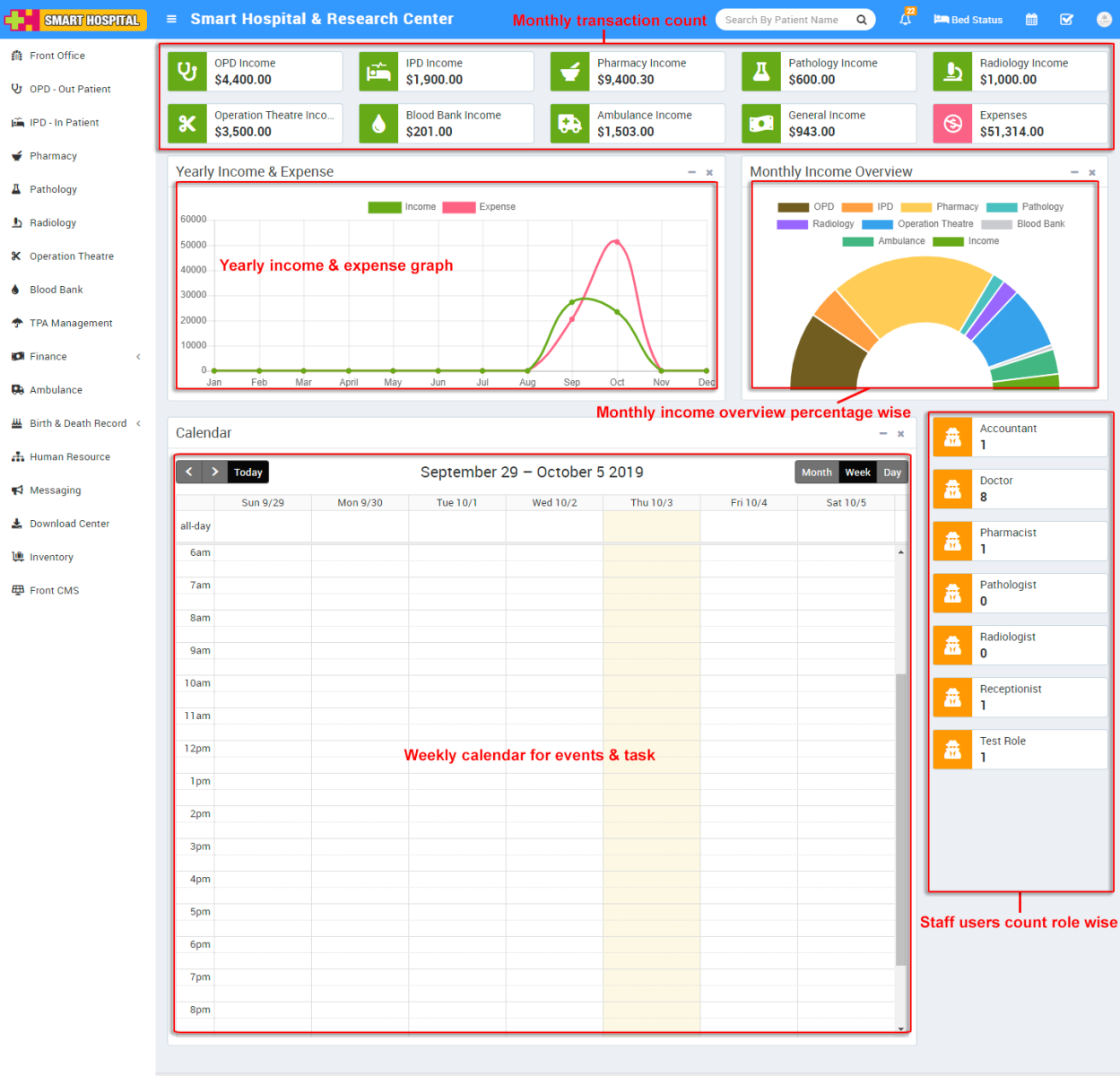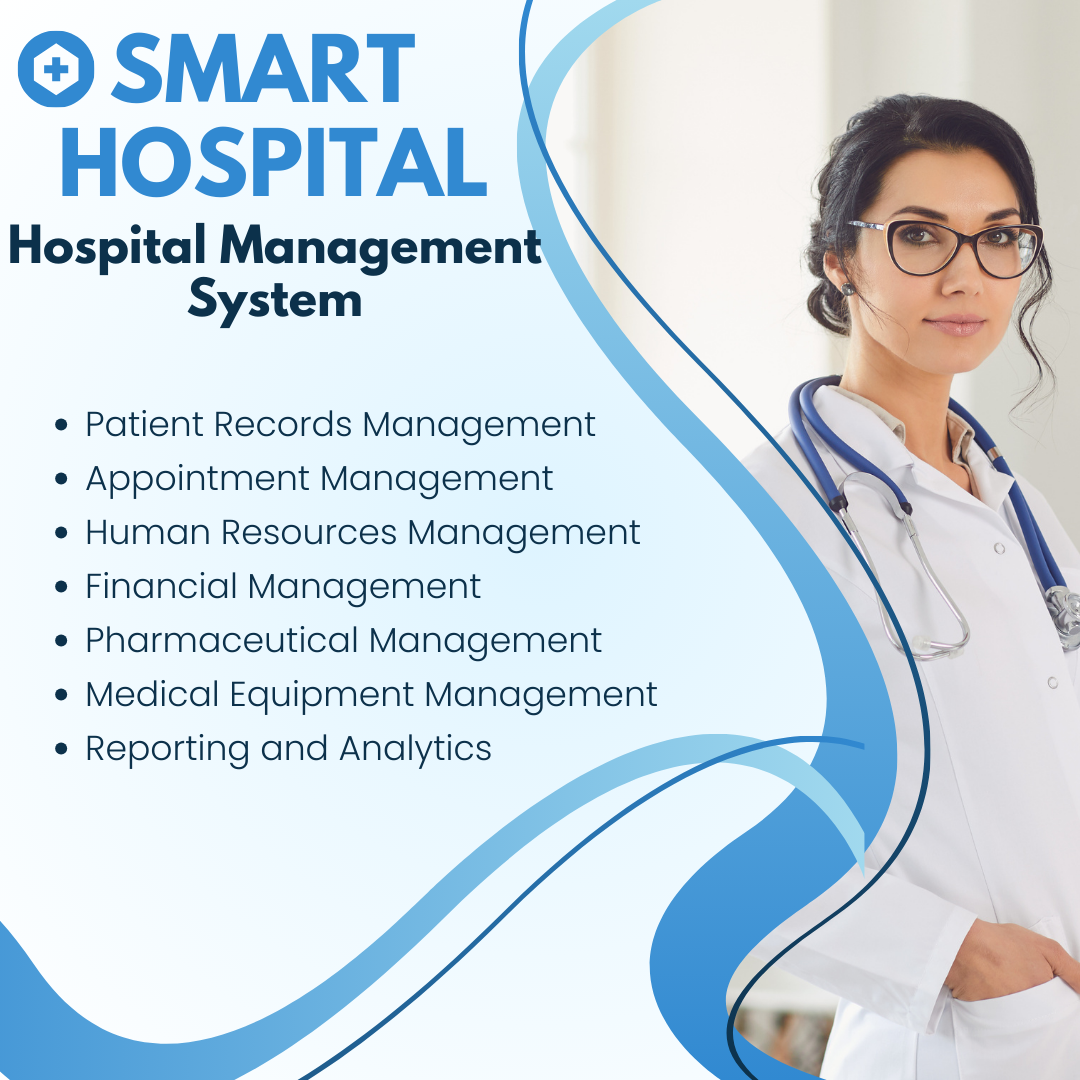Smart Hospital: Hospital Management System is a comprehensive hospital management system designed to assist healthcare facilities in managing and optimizing daily operations. The system uses advanced technologies such as artificial intelligence (AI), big data, and the Internet of Things (IoT) to bring automation, increase efficiency, and improve the quality of healthcare. Here are the details of this system:
1. Main functions
– Patient record management: Store, access, and manage patient information securely and quickly, including medical history, test results, diagnoses, and doctor’s notes.

– Appointment management: Support online appointment booking, manage doctor’s appointment schedule, remind patients about appointments via SMS or email.
– Human resource management: Manage medical staff information and records, track working time, assign tasks, and manage salaries.
– Financial management: Process payments, create invoices, manage health insurance, and track healthcare-related expenses.
– Pharmaceutical management: Manage pharmaceutical inventory, track inventory, manage drug expiration dates, and ensure timely delivery of drugs to patients.

– Medical equipment management: Monitor and manage the use, maintenance, and performance of medical equipment in the hospital.
– Reporting and analysis system: Provides detailed reports and data analysis related to operational performance, finance, and service quality to support decision making.
2. Benefits
– Increased operational efficiency: Automating manual processes helps reduce errors and speed up work processing.

– Improve service quality: Thanks to accurate and transparent information management, hospitals can provide better healthcare services and improve patient satisfaction.
– Optimize resource management: Better management of human resources, finance, and equipment helps reduce waste and optimize hospital resources.
– Information security: The system applies high security standards to protect patients’ personal information and sensitive hospital data.
3. Practical applications
– Public and private hospitals: From large-scale hospitals to smaller medical facilities, this system can be customized to suit the specific needs of each facility.
– General and specialty clinics: Smart Hospital supports effective management of operations for clinics with large patient volumes and complex management requirements.
– Diagnostic and treatment centers: Manage the process from diagnosis to treatment, including management of medical tests and imaging.
4. Challenges and requirements
– Staff training: It takes time and effort to train medical staff to become familiar with and use the system effectively.
– Implementation costs: Initial costs can be high, especially for small medical facilities or those with limited financial resources.
– Integration with other systems: Ensure that the system can integrate with existing software and technology in the hospital to avoid disruptions in operations.
5. The Future of Smart Hospital
– AI and Machine Learning Development: Applying artificial intelligence to predict disease trends, optimize treatment processes and personalize patient care.
– IoT Integration: Using connected smart devices to remotely monitor patient health, manage medical equipment and collect real-time data.
– Telemedicine: Supporting remote medical services, helping patients access doctors and care services without having to go to the hospital.
Smart Hospital: Hospital Management System is gradually becoming an indispensable part of modern medical facilities, helping to improve the quality of health care and optimize hospital management operations.


 Tiếng Việt
Tiếng Việt








Reviews
There are no reviews yet.